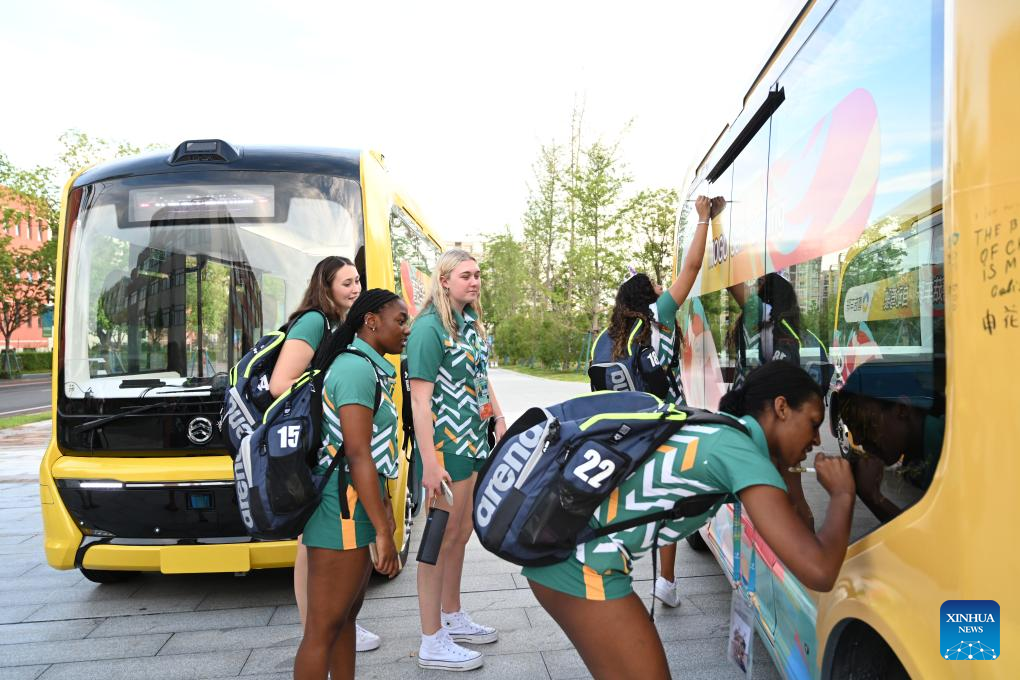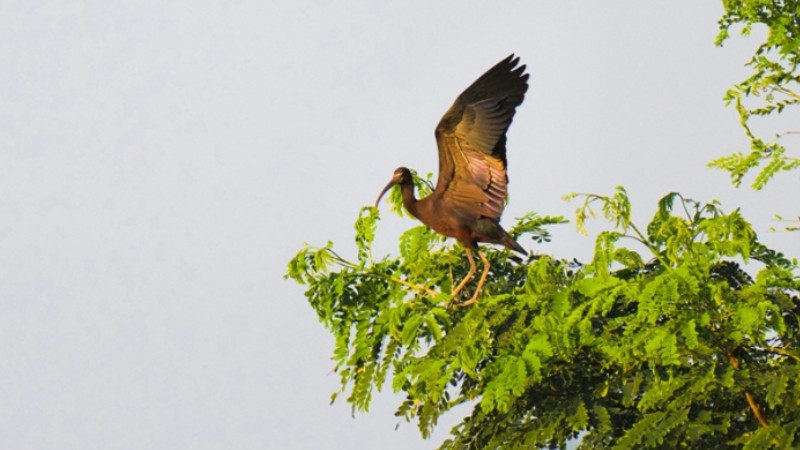Chengdu Universiade | Feature: Self-driving of NEVs in Universiade Village wows foreign student-athletes

This photo taken on Aug. 2, 2023 shows student-athletes from South Africa signing on the self-driving bus in the Village of the 31st FISU Summer World University Games in Chengdu, capital city of southwest China's Sichuan Province. (Xinhua/Hua Hongli)
CHENGDU, Aug. 3 (Xinhua) -- Getting on a self-driving bus in the Chengdu Universiade Village was absolutely an impressive experience for 23-year-old Ian Skirkey during the ongoing 31st FISU World University Games in Chengdu, capital city of southwest China's Sichuan Province.
"The whole experience is pretty awesome, and this is a great opportunity to feel China's advanced technologies," said Skirkey, a gymnast from the United States of America, adding that the Games has also offered him a chance to fly to China and experience the country's history and culture.
As the event features some low-carbon technologies, the self-driving experience of new energy vehicles (NEVs) becomes a notable highlight.
In the Universiade Village, the self-driving experience station has become the most popular site among student-athletes, and athletes from many countries have come to experience the charm of self-driving, including those from Poland, Croatia, India, South Africa, the Netherlands, the United States, and other countries.
Many student-athletes took out their mobile phones to take pictures and even signed their country's name on the bus. The student-athletes from South Africa also took out the stereo and played music on the bus.
"Great, it feels like holding a party in a self-driving bus," one of the athletes said.
For this event, about 70 NEVs have been provided by Mogo.ai, a provider of self-driving technology and operational services in China.
"Some of these vehicles are self-driving ones, which will offer a high-tech travel experience for athletes, guests, and media friends from all over the world," said Wei Jiaxing, a staff member from the experience program, adding that the project is also fully in line with the concept of making the university games a green event.
According to the traffic regulations in the Universiade Village, the driving speed will be limited to 20km per hour. During the event, each bus is expected to carry about 10 people, and the whole project is expected to serve tens of thousands of passengers.
Among all the types of buses is one model called MOGO BUS M1, which removes the steering wheel, accelerator, and brake, has a surround cockpit, multi-screen information linkage in the bus, and provides 3D rendering images from multiple perspectives. It can also achieve human-machine interaction, allowing athletes worldwide to feel the self-driving experience with a great sense of future technology.
According to Wei, the program is operational in 19 provincial-level regions in China, including Beijing, Hubei, Hunan, Yunnan, and Shandong.
China's NEV sector has entered a new stage of high-quality development marked by a steady increase in output, sales, exports, and consumption potential. The accumulative output of NEVs in China had exceeded 20 million units by July this year.
The robust development of the sector comes amid China's efforts to peak carbon dioxide emissions by 2030 and achieve carbon neutrality by 2060.
Photos
Related Stories
- China at forefront of developing, rolling out driverless taxis: expert
- Autonomous driving vehicles start commercialized demonstration operation in S China
- China releases guideline for intelligent-vehicle basic maps
- China's autonomous driving brings eco-efficiency and safety to port in Thailand
- Yangquan in N China's Shanxi shifts to green development through burgeoning automated driving industry
Copyright © 2023 People's Daily Online. All Rights Reserved.









